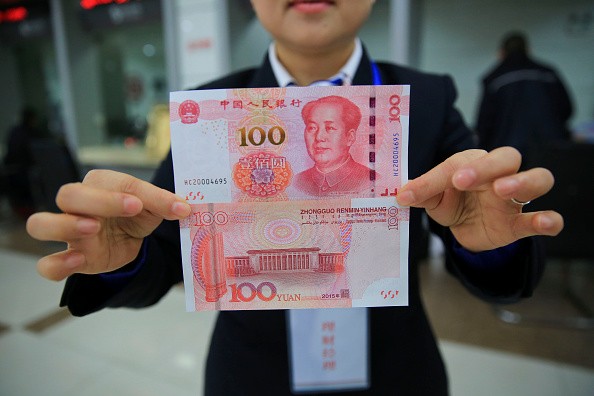China is making efforts to keep the yuan from falling against the dollar, after concerns grow that Chinese firms with dollar debts may rush to pay off early before the Chinese currency further weakens, which could result in increased capital outflows.
The Wall Street Journal reported that in the past three months, the yuan fell by 4 percent while the dollar reached its 14-year high recently against 16 other currencies. The depreciation of the yuan has put pressure on the currency and sending more businesses to avoid it.
China's central bank and other agencies have stepped up efforts to restrict Chinese companies from investing overseas to strengthen the yuan. Recently, authorities have ordered Chinese banks to tighten scrutiny of foreign currency purchases.
About 17 months ago, the global markets were surprised with the yuan devaluation, although the currency is not freely traded, affecting many Chinese businesses.
Chinese officials and economists said that Chinese firms with large dollar debts are another reason for the intensified restrictions. These firms needed more yuan to pay off their dollar debts that could result in more outflows and weaken the yuan.
The People's Bank of China did not provide details of the Chinese companies' debts but economists and analysts said that more than half of the debt is in U.S. dollars.
Government data show that foreign borrowings by Chinese companies rose by 4 percent, an increase of $47.7 billion to $1.2 trillion in the third quarter of 2016. State banks, which need external funding to reload their capital base, accounted for 38 percent of the increase.
Corporate filings show that the other big borrowers include airlines, property developers and local government companies that fund infrastructure projects. Air China Ltd., China Eastern Airlines Corp. and China Southern Airlines Co., the country's three large carries, have incurred billions of dollars in foreign debt, despite efforts to reduce the amount last year.
Although a weaker yuan will be beneficial to Chinese exporters, the central bank wants to manage the depreciations to prevent a damaging situation.
In 2016, the yuan fell by about 7 percent against the dollar, almost double the decline from the previous year. In the coming weeks, analysts and investors are expecting the currency to reach the level of 7 yuan per dollar.
To pacify concerns of yuan's further decline, the central bank has tightened rules on the movement of capital, to make it difficult for companies to invest in foreign countries and restrict financial activities of individuals.
More recently, the country's foreign exchange regulator ordered banks to scrutinize applications for foreign currency purchases. The new order, which took effect beginning Jan. 1, requires individuals to fill out a form to enable foreign currency purchases of $50,000, under an annual currency-conversion quota.
The regular said that this was aimed at closing the loopholes in the rules that allow individuals to use the quota for education and travel and not for investing overseas.
Goldman Sachs estimated that a total of $69.2 billion was taken out of the country in November, in comparison with the monthly outflow of about $50 billion since June.
Li Daokui, a Tsinghua University professor and former adviser to the central bank, said that further tightening of capital controls must be done to curb outflows, adding that the central bank would be in a "tough battle" to keep the yuan from falling more than 5 percent this year from the current level of about 6.95 per dollar.



























